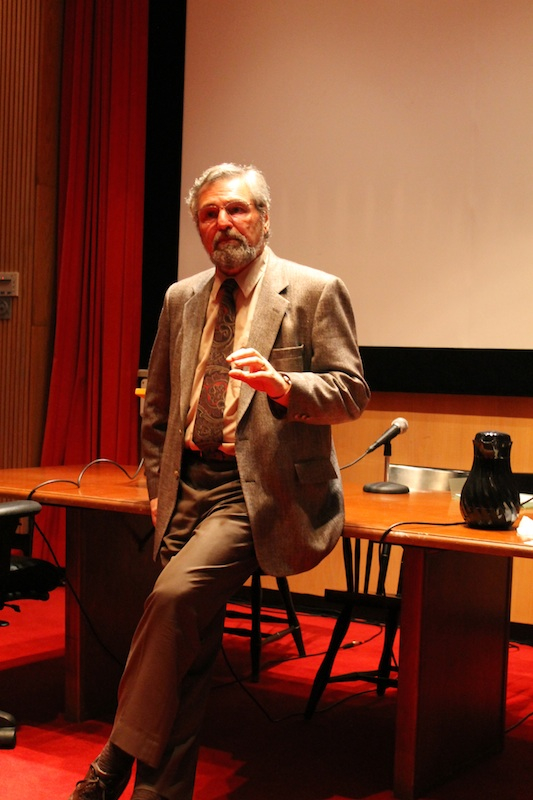

The room was quiet as the College’s fourth and final 9/11 memorial event opened, last night in the Cole Assembly Room in Converse Hall. The panel was entitled “9/11: How we are different 10 years later.” With Dean of Faculty Gregory Call moderating, Professors Frank Couvares, Lawrence Douglas and Patricia O’Hara took turns speaking.
The event was organized by the College’s 9/11 committee, which included Director of Public Affairs Peter Rooney, Librarian of the College Bryn Geffert, Director of On-Campus Programs Marcy Larmon, Events Coordinator Patricia Allen, Dean of Academic Support and Student Research Ben Lieber, Director of Alumni and Parent Programs Betsy Cannon Smith ’85 as well as Director of Religious Life Reverend Paul Sorrentino. The committee was tasked with organizing the College’s various 9/11 memorial events of this past month. Two were held on the 10-year anniversary of the 9/11 attacks: a morning memorial and an interfaith gathering, with this panel being held nine days later.
Call started the panel with a reading of Emily Dickinson’s Poem #341, which featured themes of pain and recovery. The poem set the tone for the evening. Professor Couvares then stood and spoke.
“The day after 9/11, I was standing right here [in the Cole Assembly Room],” he said. “I was supposed to be lecturing on cities and immigrants at the turn of the century, but of course there was only one possible subject that day. So I asked the class, ‘Where do you want to start?’”
Couvares recounted the questions that Amherst students had on the day after 9/11. He discussed how many wanted to know two things: why did the terrorists hate us, and what would happen next? As a professor of History, Couvares looked to American foreign policy to find the roots of the anti-American rage that had fueled the attackers.
Since WWII, he explained, the United States has occasionally chosen to ally itself with authoritarian regimes in order to protect and advance American interests abroad. “History is messy,” he said, “but the United States has made a series of catastrophic, bad choices with the sort of people we have pressed to our bosom.” He elaborated that in the Middle East, this support of unpopular regimes — coupled with American support for Israel — created immense resentment among Arabs.
Professor Lawrence Douglas spoke next and commented on the economic and legal effects of 9/11. He explained that the tragic events of that day left an intellectual legacy among the “9/11 generation” — who, unlike their predecessors, rejected the idea of torture as universally evil, instead accepting its justifiable use for “good.”
Dean O’Hara shared a more personal outlook. Being a New Yorker herself, the Twin Towers of the World Trade Center were a landmark of her childhood, and her family was heavily implicated in the events that day. One of her brothers was a first responder, while her cousin disappeared on that day; his badge was later found amidst the rubble, presumably because he had gone in to help without telling anyone and subsequently lost his life. But from these losses, explained Dean O’Hara, she picked up strength rather than to hatred.
As the room cleared after the discussion, Will Gillespie ’15 remarked on the sparse attendance of the room. Having grown up in New York, a 15-minute bike ride away from the towers, the attacks struck closer to him than most. Gillespie mentioned that the panel being scheduled for nine days after the anniversary probably affected attendance, but even that was not the full story.
“I think people are always trying to forget,” said Gillespie. “[Even on the anniversary], I didn’t really hear anyone talking about it … and I was really shocked by that fact.”